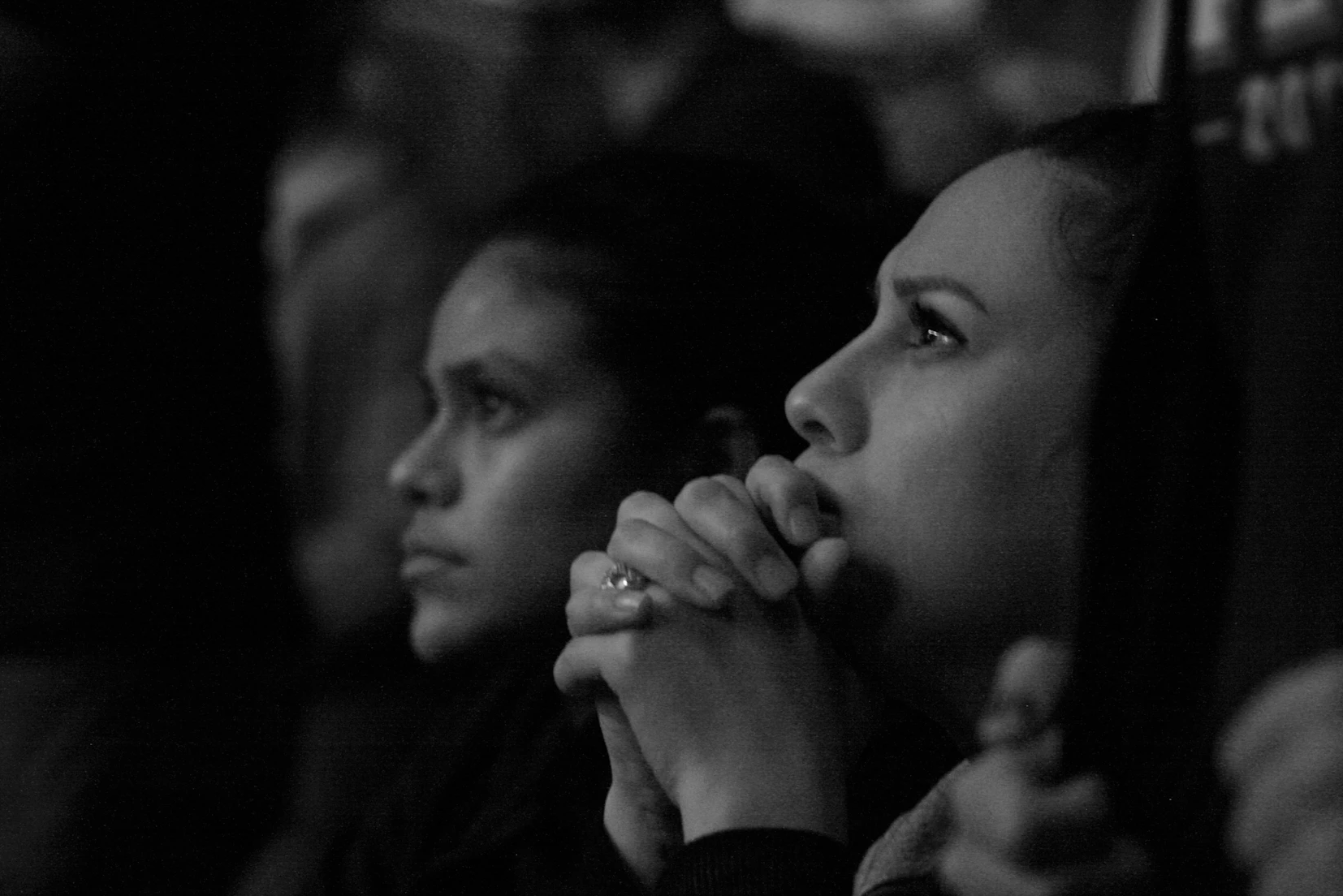

New York Times reporter Lauren Jackson has spent a year deep-diving into America’s religious landscape, publishing regular updates through the paper’s “Believing” project. On the heels of a major joint study by Harvard and Baylor researchers called “Promoting Human Flourishing,” Jackson highlights one of the “three B’s” that (she says) religion offers to people—they are “beliefs about the world,” “behaviors to follow,” and “belonging in a community.”
It’s the last one—belonging—that dovetails with the human flourishing study. Cross-referencing the details of that research with her own reporting, Jackson writes: “People flourish—they live happier, healthier and better lives—if they have strong social connections. It also found that religions, for all their reputational baggage, can provide people with robust communities.” We all know that the church is in the midst of a disorienting downturn in attendance—people who once found their place in a congregation, don’t anymore. What is missing in all of the dire projections about the church’s future is the lingering impact on people who leave behind their (flawed) religious community.
To flourish in life, people must find places and people that give them a sense of belonging. And, it turns out, congregations are a primary source for belonging for people around the world. In the Harvard/Baylor study, researchers discovered “nearly one-third of participants reported attending religious services weekly or more, and such attendance was consistently associated with higher levels of well-being across countries.”
Jackson says, “People need to be in strong communities to flourish, defined as being in a state where all aspects of their lives are good… When people feel exiled from their religious community—because of their politics, their sexuality or their beliefs—they often lose entire worlds. The grief that follows can be comprehensive. Many people stay away from faith communities, often for good. Others decide to come back, which seems to be contributing to the pause of secularization in America.”
What is emerging as we journey deeper into the American church decline is a hunger for belonging that social media (of course), a gym membership, and vacation cruises can’t touch. Slowly, inexorably, people (especially young people) are gravitating to religious communities—seeking the kind of belonging that has escaped them in the wider culture. The Times’ op-ed columnist David Brooks writes:
“Something’s going on in our culture. The decline of religious participation, which was so rapid between 2010 and 2020, seems to have stopped. There has been a relative surge in religious interest among young men. According to research by the evangelical Christian polling group Barna, 66 percent of Americans say they have made a personal commitment to Jesus—a 12-percentage-point jump since 2021. Similar things may be happening in Europe. In France the Catholic Church saw a 45 percent increase in new catechumens this Easter compared with last year, and it has baptized more than 17,000 people, the highest yearly number of entrants in over 20 years. According to an April report by the Bible Institute, the percentage of British adults age 18 to 24 who attend church at least monthly increased from 4 percent in 2018 to 16 percent today, including a 21 percent gain among young men.”
We see similar patterns in surprising places like Finland, where there’s a startling resurgence in church attendance among young men. When you push away from the table because you don’t like what’s being served, you have to find another place to eat. But what happens when your meal options leave you empty inside? That’s the message of the most famous of Jesus’ parables—the Prodigal Son…
When the younger son decides he’s had enough of his father’s generosity and goodness, he pushes back from the table to find his own food. What he finds, in the end, is pig-pods. And there in the muck of his chosen life he realizes what he could never have seen if he had stayed under his father’s roof—there was something deeply good about the community he left behind. And in the decimating humility of his life circumstances, he returns as a man who now knows the truth about himself, and the truth about his father… To celebrate his return, the father invites him back into community with a relaxed exuberance.
To those tired of pig-pods in your community, does your church feel like a place that has arms outstretched, ready to invite to a feast? Their hunger for belonging is palpable, and growing…
Two Questions to Mull:
1) In what ways am I helping to form a forgiving, inviting, open-armed culture in my church?
2) How are we communicating to our community that a feast awaits them in your church?
Take Your Next Steps
At Vibrant Faith we’ve created two resources designed to help ministry leaders live out a belonging-magnet mission in congregations. Familying the Faith is a kit that includes a new e-book (written my Dr. Nancy Going and I) along with two MasterClass sessions featuring Dr. Christian Smith, sociology of religion professor at Notre Dame, and Laura Kelly Fanucci, writer and founder of Mothering Spirit. And Practical Tools for Raising Faithful Kids bridges the gap between knowledge and practice – for parents who want to influence their kids toward a deeper faith. You get six lessons for hybrid-learning formats, editable leader and participant guides, and a PowerPoint slide deck. Check out these one-of-a-kind resources, and take your next step toward a home-centered, church-supported revolution in your church culture.

Rick Lawrence is Executive Director of Vibrant Faith—he created the new curriculum Following Jesus. He’s editor of the Jesus-Centered Bible and author of 40 books, including his new release Editing Jesus: Confronting the Distorted Faith of the American Church, The Suicide Solution, The Jesus-Centered Life and Jesus-Centered Daily. He hosts the podcast Paying Ridiculous Attention to Jesus.


